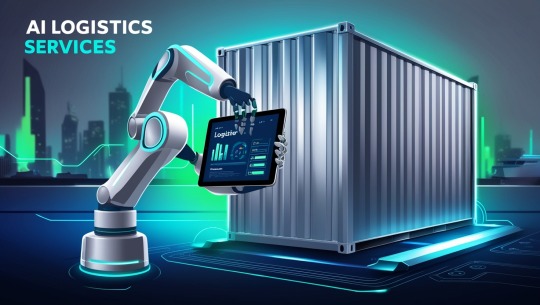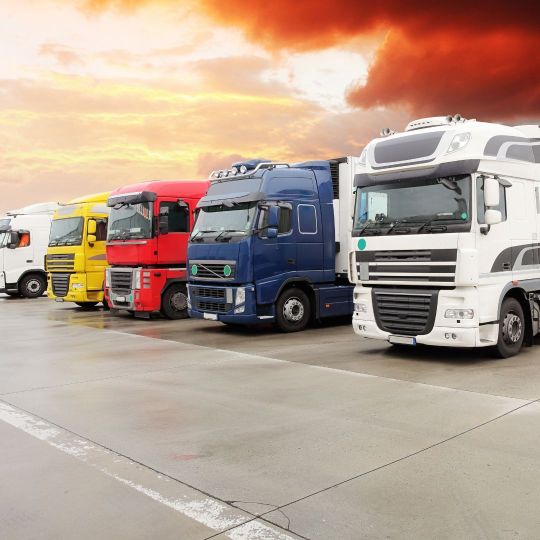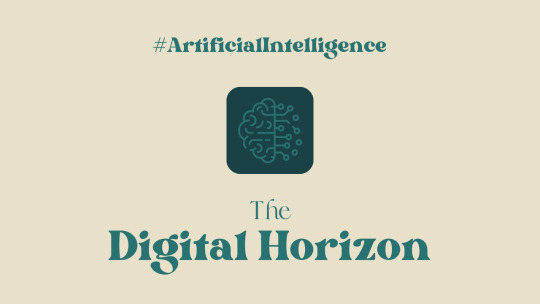#AI in Transportation
Explore tagged Tumblr posts
Text
How to Unlock the Power of AI in 2025 🚀✨
“`html 2025 Real-Life Applications of AI Introduction AI in Healthcare AI in Education AI in E-commerce AI in Transportation Conclusion Have you ever wondered how artificial intelligence has changed our lives in profound ways? At first, I didn’t know just how deeply AI would integrate into everyday experiences by 2025. As I began exploring various fields, I discovered remarkable applications…
#2025 AI innovations#AI in e-commerce#AI in education#AI in healthcare#AI in transportation#AI technology benefits#applications of AI in everyday life#artificial intelligence advantages#modern uses of AI#real-life applications of AI
0 notes
Text
The AI Revolution: 10 Industries Being Transformed by AI
The relentless march of technology often brings about profound shifts, but few have been as sweeping and impactful as the current Artificial Intelligence (AI) revolution. Once confined to the realms of science fiction, AI has now permeated nearly every facet of our daily lives, quietly reshaping industries, redefining possibilities, and fundamentally altering how businesses operate. This isn’t…
#agricultural AI#agriculture AI tools#AI adoption#AI applications#AI benefits#AI challenges#AI evolution#AI for growth#AI impact on business#AI in agriculture#AI in banking operations#AI in cybersecurity#AI in education#AI in finance#AI in healthcare#AI in industries#AI in manufacturing#AI in media#AI in retail#AI in transportation#AI innovation#AI opportunities#AI revolution#AI solutions#AI strategy#AI-driven cyber defense#AI-driven insights#artificial intelligence transformation#automation#autonomous systems
0 notes
Text
Revolutionizing Transportation with AI: Key Benefits, Use Cases & Examples
Discover how AI is transforming the transportation industry with enhanced safety, smarter logistics, and improved efficiency. This in-depth guide explores the key benefits, real-world applications, and powerful use cases of artificial intelligence in transportation—from autonomous vehicles to predictive maintenance and intelligent traffic systems. Learn how businesses can leverage AI to drive innovation and reduce operational costs.
Visit here - https://www.infowindtech.com/ai-in-transportation-benefits-examples-and-use-cases/
0 notes
Text
The Future of AI in Transportation
AI in transportation is reshaping how we move. Discover how autonomous vehicles, smart systems, and AI-driven public transit lead the future AI in transportation is driving innovation, reducing traffic issues, and increasing safety across cities in the USA, UK, and Europe. View more 🟩 Smart Transportation Systems Are Becoming the Norm Smart transportation systems use AI algorithms to manage…
#ai#AI in transportation#artificial-intelligence#autonomous vehicles#business#machine-learning#public transit innovation#smart traffic systems#technology
0 notes
Text
The Fastest Trains In the World Today
High-speed rail has redefined modern transportation by blending cutting-edge technology, engineering precision, and sustainable energy to create the fastest trains in the world today. As countries invest billions in rail infrastructure, these trains not only offer rapid transit but also a glimpse into the future of mobility. In this article, we delve into the history, technology, and standout…
#AI in transportation#autonomous trains#fastest trains#Fuxing Hao#high-speed rail#ICE 3#Maglev#modern transportation#rail technology#sustainable travel#TGV
0 notes
Text
How AI in Logistics is Driving the Future of Transportation

Explore the benefits of AI in logistics and transportation, from real-time tracking to predictive maintenance, and why businesses are adopting AI-powered logistics solutions.
#Ai in Logistics and Transportation#AI in Logistics#Ai in Transportation#Benefits of AI in Logistics
0 notes
Text
How Are Emerging Technologies Transforming Transportation Solutions in 2025 ?
The transportation industry is undergoing a seismic shift in 2025, thanks to rapid advancements in technology. From artificial intelligence to autonomous vehicles and blockchain systems, these innovations are redefining how goods are moved across cities, countries, and continents. For companies and consumers alike, the rise of smart transportation solutions promises increased efficiency, safety, and sustainability.

1. Autonomous Vehicles Are Reshaping Logistics
Autonomous vehicles have evolved significantly, and in 2025, they are not just prototypes — they’re practical tools. Self-driving trucks are reducing the need for human drivers, lowering costs, and minimizing delivery delays. These vehicles are especially effective in long-haul freight, maintaining optimal speeds, reducing fuel consumption, and improving safety on Australian highways.
2. AI-Powered Route Optimization
Artificial intelligence is a game-changer for logistics planning. With real-time data processing, AI systems are helping transport companies optimize routes based on traffic, weather, and delivery schedules. This not only boosts operational efficiency but also enhances customer satisfaction by ensuring on-time deliveries. In Australia, with its vast distances between cities, smart routing is becoming essential for scalable transportation solutions.
3. Blockchain for Transparent Tracking
Blockchain technology is making the entire supply chain more transparent and secure. From dispatch to delivery, every step can now be recorded in a tamper-proof digital ledger. This is particularly useful in container transport, where accurate tracking is vital for compliance and customer trust. Companies embracing blockchain in 2025 are seeing fewer disputes and more reliable data.
4. Electric and Sustainable Fleets
Sustainability is no longer optional — it’s a competitive advantage. With government incentives and rising environmental awareness, many transport providers are adopting electric and hybrid fleets. These vehicles are reducing emissions, cutting fuel costs, and aligning with Australia’s goals for a greener future. The adoption of cleaner transportation solutions is especially important in urban areas facing pollution and congestion challenges.
5. Internet of Things (IoT) and Smart Monitoring
IoT devices installed in containers and trucks provide real-time monitoring of cargo conditions — from temperature and humidity to vibration levels. This is crucial for transporting sensitive goods like pharmaceuticals or perishables. IoT-enabled systems help reduce spoilage, increase accountability, and improve overall service quality.
Conclusion
As we move further into 2025, the integration of emerging technologies is making transportation solutions smarter, safer, and more sustainable than ever. Companies that adapt early will not only stay competitive but lead the industry in efficiency and innovation.
If you're looking for reliable and forward-thinking transport services in Australia, Adelaide Container Transport Logistics is here to help. We combine years of experience with cutting-edge technology to deliver seamless, cost-effective logistics solutions tailored to your needs. Contact us today to move your business forward.
Frequently Asked Questions (FAQ)
1. What are transportation solutions?
Transportation solutions refer to the methods, technologies, and services used to efficiently move goods and people from one location to another. This includes everything from trucking and freight logistics to route optimization, container transport, and real-time tracking systems.
2. How are emerging technologies improving transportation solutions in 2025?
Emerging technologies like AI, autonomous vehicles, blockchain, and IoT are making transportation faster, safer, and more cost-effective. They help reduce delays, improve cargo tracking, and enhance route planning — especially important for large-scale logistics operations.
3. What is the benefit of AI in transport logistics?
AI helps in real-time route optimization, predictive maintenance, fuel efficiency, and demand forecasting. It enables transport companies to reduce costs and deliver better customer service through intelligent decision-making.
4. Why is blockchain important in container transport?
Blockchain ensures transparency and security in logistics. It creates a digital ledger of every transaction or movement, reducing paperwork, preventing fraud, and increasing trust among all stakeholders in the supply chain.
5. How can I choose the right transportation solution for my business in Australia?
The best transportation solution depends on your cargo type, delivery timelines, and budget. Look for companies that offer modern tracking systems, reliable container transport, and experience in Australian logistics — like Adelaide Container Transport Logistics, who provide tailored solutions to meet your needs.
#ransportation Solutions#Transport Technology 2025#Logistics Innovation#Container Transport Australia#Smart Logistics#Freight Transport#AI in Transportation
0 notes
Text
How the future of transportation with artificial intelligence is transforming the modern journey, self-driving cars, smart traffic management, and more.
#Mobile Apps#AI#Artificial Intelligence#ai in transportation#ai in travel and transport#Mobile App Development#Transportation Industry#Transportation Sector
0 notes
Text
🚀💻 BREAKING: Nvidia’s AI Ultra Chip is coming! 🤯🔥 With Reuben Architecture, this next-gen chip will make AI computing ⚙️💡 faster, smarter & more powerful! 🤖⚡ 💊🏥 Healthcare: Faster diagnosis & drug discovery 💉🧠 🚗🚦 Self-driving cars: Real-time decision making 🏎️🔋 💰📊 Finance: Accurate predictions 💹📈 🎮🕹️ Gaming: Ultra-realistic graphics 🎨👾 But can Nvidia stay ahead of AMD, Intel, Google & Microsoft? 🤔💡 👉 Read more! 📖🔍 #NvidiaAI #FutureOfAI #TechNews #AIUltraChip 🚀💻
#AI chip competition#AI chip launch 2026#AI chip market#AI data centers#AI in gaming#AI in healthcare#AI in Transportation#artificial intelligence chip#deep learning chip#Future of AI#next-gen AI technology#Nvidia AI dominance#Nvidia AI Ultra Chip#Nvidia market value#Nvidia vs AMD#Nvidia vs Intel#Reuben Architecture
0 notes
Text
Exploring the Role of AI in Autonomous Vehicles

In today’s rapidly evolving transportation landscape, AI in autonomous vehicles is not merely an innovation—it’s a revolution. As technology continues to break barriers, companies like Hutech Solutions are at the forefront, developing AI mobility solutions that promise to transform the way we experience travel. By integrating advanced algorithms and real-time data analysis, autonomous vehicles are setting new benchmarks in safety, efficiency, and overall performance, offering the best practices in modern transportation.
Read more: https://hutechsolutions.com/ai-role-in-autonomous-vehicles/
Visit Site: https://hutechsolutions.com/
The Role of AI in Autonomous Vehicles
Autonomous vehicles, commonly known as self-driving cars, rely heavily on AI to navigate complex road environments, analyze real-time data, and make decisions that can prevent accidents. These vehicles incorporate several key technologies:

Machine Learning Algorithms
At the heart of every autonomous vehicle is a suite of powerful machine-learning algorithms. These algorithms enable vehicles to:
Recognize and interpret traffic patterns.
Predict potential hazards with unprecedented accuracy.
Continuously learn from real-world data to enhance performance and safety.
Machine learning not only improves the vehicle’s decision-making abilities but also contributes to a significant return on investment by reducing operational costs over time.
Computer Vision & Sensor Fusion
Computer vision combined with sensor fusion is critical for the accurate perception of the environment. By processing inputs from cameras, LiDAR, radar, and ultrasonic sensors, AI systems create a comprehensive digital map of the surroundings. This integrated view:
Facilitates the cost-effective detection of obstacles.
Ensures precise navigation in dynamic urban settings.
Enhances the customer experience by enabling smoother rides and reducing the potential for accidents.
Real-Time Decision Making
The true power of AI in autonomous vehicles lies in its ability to make split-second decisions based on real-time data. Advanced control systems analyze a myriad of factors such as traffic conditions, road signs, and pedestrian movements to:
Optimize the vehicle’s route.
Adjust driving behavior instantly, thereby enhancing efficiency.
Improve overall road safety, ensuring that self-driving cars perform reliably in any environment.
Connectivity & Edge Computing
Connectivity is another cornerstone of autonomous transportation. With edge computing and robust network connectivity, vehicles can:
Communicate seamlessly with other vehicles (vehicle-to-vehicle communication) and infrastructure (vehicle-to-infrastructure communication).
Share critical data instantaneously to prevent accidents and improve traffic management.
Operate in a cost-effective manner by reducing the reliance on centralized data centers.
The Transformative Impact on Global Transportation

The integration of AI into autonomous vehicles is redefining global transportation by addressing long-standing challenges while paving the way for innovative mobility solutions:
Enhancing Safety: By minimizing human error—the primary cause of road accidents—AI significantly improves road safety.
Boosting Efficiency: AI-driven navigation and route optimization reduce traffic congestion and travel time, leading to an overall increase in transportation efficiency.
Cost-Effectiveness: The advanced technologies in self-driving cars reduce maintenance costs and operational expenses, delivering a high return on investment.
Elevating Customer Experience: AI systems provide a smoother, more reliable journey, ensuring that the customer experience is second to none.
Sustainability: By optimizing driving patterns and reducing fuel consumption, autonomous vehicles contribute to lower emissions and a greener environment.
Conclusion
The transformative power of AI in autonomous vehicles is reshaping the future of transportation. By leveraging advanced technologies like machine learning, computer vision, and edge computing, self-driving cars are delivering cost-effective, efficient, and high-performing AI mobility solutions. These innovations not only offer the best practices in modern transportation but also promise an enhanced customer experience, a significant return on investment, and a more sustainable approach to global business operations.
At Hutech Solutions, we are dedicated to pioneering these advancements, ensuring that autonomous transportation continues to evolve and improve. As the industry progresses, the integration of AI will remain at the forefront of this evolution, driving forward a future where mobility is smarter, safer, and more accessible to all.
Are you ready to embrace the future of transportation? Explore the innovative world of AI-driven autonomous vehicles and experience the next generation of mobility solutions that combine safety, efficiency, and cost-effectiveness—all designed to deliver the best possible customer experience.
1 note
·
View note
Text
AI technology and the future of humans
AI technology and the future of humans: Artificial Intelligence (AI) has rapidly evolved from a futuristic concept to an integral part of our daily lives.
AI technology and the future of humans: Artificial Intelligence (AI) has rapidly evolved from a futuristic concept to an integral part of our daily lives. From smart home devices to advanced data analytics, AI is revolutionizing various sectors and reshaping how we interact with technology. In this article, we’ll explore the rise of AI, its applications, and how it’s transforming our…
#AI and creativity#AI and ethics#AI and job displacement#AI and sustainability#AI applications in healthcare#AI for business#AI in banking#AI in business#AI in customer service#AI in education#AI in entertainment#AI in transportation#AI technology#AI vs. machine learning#Artificial Intelligence (AI)
0 notes
Text
How AI is Transforming Everyday Technology
Introduction
Welcome to TechtoIO! Today, we delve into one of the most exciting developments in modern technology: artificial intelligence (AI). AI has moved beyond the realm of science fiction and is now an integral part of our daily lives. From smart homes to personalized recommendations, AI is transforming everyday technology in ways we once only dreamed of. In this article, we explore how AI is reshaping various aspects of our lives and what we can expect in the near future. Read to continue
#Innovation Insights#TagsAI automated trading#AI content recommendations#AI customer service#AI energy management#AI entertainment industry#AI fraud detection#AI home security#AI in education 2024#AI in finance#AI in gaming#AI in healthcare 2024#AI in transportation#AI in VR and AR#AI predictive maintenance#AI traffic management#AI transforming technology#AI voice assistants#autonomous vehicles AI#personalized learning AI#smart home AI#Technology#Science#business tech#Adobe cloud#Trends#Nvidia Drive#Analysis#Tech news#Science updates
1 note
·
View note
Text
The Impact of AI and Automation on the Trucking Industry
Photo by Ricky Esquivel on Pexels.com So, we’ve all heard about the buzz around AI and automation in the trucking industry, right? It’s pretty fascinating stuff. I know it sounds all high-tech and futuristic, but it’s really changing the game for truckers in ways that are super practical and beneficial. First off, there’s predictive maintenance. Imagine you’re on the road, hauling a load, and…

View On WordPress
#AI and truck safety#AI driving systems#AI for truck maintenance#AI for truckers#AI in logistics#AI in transportation#AI in trucking#AI route planning#AI transportation management#AI truck efficiency#AI truck technology#AI trucking solutions#automated load matching#automated trucking#automation in trucking#autonomous driving trucks#autonomous trucks#business#cash flow management#digital freight platforms#driver assistance systems for trucks#Freight#freight industry#Freight Revenue Consultants#logistics#predictive maintenance for trucks#route optimization for truckers#small carriers#Transportation#truck automation benefits
0 notes
Text
AI and the Future of Work: Transforming Job Markets and Employment
Discover how AI is reshaping job markets and transforming various industries, from healthcare to finance. Explore the ethical considerations and latest trends in AI development, including generative AI and regulatory measures.
Artificial intelligence (AI) has emerged as a disruptive force in today’s workplace, changing labor markets and employment dynamics across multiple industries. As AI advances, its impact on jobs, industry practices, and ethical considerations grows more significant. This essay investigates how AI is changing labor markets, revolutionizing sectors, and posing key ethical concerns. AI’s Impact on…

View On WordPress
#AI and Future of Work#AI in Education#AI in Finance#AI in Healthcare#AI in Retail#AI in Transportation#AI Job Market Trends#AI Regulatory Measures#dailyprompt#Ethical AI Development#Generative AI#Impact of AI on Employment
0 notes
Text
The Impact of Artificial Intelligence on Logistics Problems

In today's fast-paced world, the logistics industry faces a multitude of challenges, from managing complex supply chains to ensuring timely delivery. But imagine a world where these problems are not just managed but are proactively anticipated and resolved. Enter artificial intelligence (AI), a game-changing technology that is revolutionizing logistics. As AI development companies continue to innovate, the logistics sector reaps significant benefits, enhancing efficiency and reducing operational costs.
Revolutionizing Route Optimization
Have you ever wondered how your package arrives just in time, even amid traffic jams and road closures? AI is the unsung hero behind this seamless process. Through advanced algorithms, AI analyzes historical traffic data, weather conditions, and vehicle performance to determine the quickest and most cost-effective routes. This not only speeds up delivery but also reduces fuel consumption and emissions, contributing to a greener planet.
Enhancing Inventory Management
Imagine walking into a warehouse where every item is tracked in real-time, with stock levels perfectly aligned with demand. AI makes this a reality. By predicting trends and analyzing consumption patterns, AI helps companies maintain optimal stock levels, preventing both overstocking and stockouts. This precision not only cuts down on storage costs but also ensures that products are available when consumers need them.
Transforming Customer Service
Customer service in logistics isn't just about answering calls. It's about anticipating needs and solving problems before they escalate. AI-powered chatbots and virtual assistants can provide instant responses to customer inquiries, track shipments in real-time, and even handle complaints. This level of interaction, available 24/7, enhances customer satisfaction and loyalty.
Predictive Maintenance
Now, picture a fleet of trucks that alerts you before they break down. Predictive maintenance powered by AI analyzes data from various sensors in vehicles to predict potential failures before they occur. This proactive approach minimizes downtime and extends the lifespan of the machinery, significantly reducing the unexpected costs that usually accompany breakdowns.
The Role of AI Development Companies
AI development companies are the architects behind these innovations. They develop the algorithms and machine learning models that enable AI to learn from data and improve over time. Their expertise not only drives advancements in logistics but also ensures that the integration of AI into existing systems is smooth and effective.
Conclusion
The impact of AI on logistics is profound and transformative. As AI continues to evolve, its potential to solve even more complex logistics problems is limitless. For companies willing to embrace this technology, the future is not only promising; it's already here. Have you considered how AI could enhance your logistics operations?
In this era of technological advancement, staying informed about the latest developments from top AI development company might just be the key to unlocking unprecedented efficiency and customer satisfaction in your logistics operations.
0 notes
Text
How Artificial Intelligence is Changing Everyday Life

You might've heard that Artificial Intelligence (AI) is predicted to add a staggering $15.7 trillion to the global economy by 2030. But do you know how it's revolutionizing your everyday life right now? From healthcare to your daily commute, AI is making significant strides. Let's dive in and explore the incredible ways this technology is affecting us all.
AI and Your Health
Telehealth has become more than a buzzword; it's a lifeline for many, especially during times of crisis. AI-driven platforms are making it possible to have a doctor's appointment from the comfort of your home. Not just that, predictive algorithms analyze a wide range of patient data to forecast potential diseases. Imagine knowing the likelihood of a health condition long before it strikes! But it doesn't stop at patient care. The administrative side of healthcare—think paperwork, appointment scheduling, and billing—is also getting an AI makeover, allowing medical professionals to focus more on what they do best: taking care of you.
Getting Around With AI
If you've ever been stuck in traffic, fantasizing about a world where cars drive themselves, you're in for a treat. Self-driving cars are no longer just the stuff of science fiction. These AI-controlled vehicles promise not only to make driving easier but also safer by reducing human error. Beyond personal cars, AI is optimizing public transportation. Algorithms sift through data to provide the most efficient routes and schedules. Even our traffic lights are getting smarter; they adapt to real-time road conditions, reducing your wait time at red lights.
AI at Home
Your home, too, is getting the AI treatment. Voice-activated devices like Alexa and Google Home are not mere novelties; they're practical tools that can control lighting, temperature, and even your refrigerator. Speaking of energy, AI goes beyond convenience. It's helping us manage our energy consumption by optimizing heating and cooling systems. It's like having a personal environmentalist in your pocket, helping you reduce your carbon footprint one decision at a time.
Managing Money Through AI
Managing finances is not everyone's cup of tea, and that's where AI comes in. Robo-advisors use machine learning to assess market conditions and make investment decisions. You also have an extra layer of security with real-time fraud detection. And if you find budgeting a chore, AI-powered apps are here to help, offering personalized advice tailored to your spending habits.
Navigating Ethical Waters
While AI offers extraordinary benefits, it's essential to consider the ethical implications. Data privacy, for instance, is a significant concern. As we rely more on these intelligent systems, there's the question of how much we're willing to give away in terms of personal information. Beyond that, there's the debate over job displacement and dependency on machines. It's crucial to strike a balance and prioritize ethical development in the AI sphere.
The Future is Bright
Looking ahead, the possibilities seem almost endless. Whether it's art generated by algorithms or AI-driven educational tools that adapt to each student's needs, the future of AI is a canvas of untapped potential. The key is to view AI not as a looming threat but as a tool for furthering human advancement.
To Sum it All Up
AI is more than a technological trend; it's a transformative force impacting our healthcare, transportation, homes, and even our wallets. By proceeding with ethical considerations at the forefront, we can ensure that AI serves as a tool to augment our human capabilities rather than replace them. So, as we stand on the cusp of this digital revolution, let's embrace the endless possibilities AI offers for a brighter, more convenient future.
Thank you for reading! Stay tuned to The Digital Horizon for more insights, tips, and recommendations on navigating the digital world.
#Artificial Intelligence#AI in Healthcare#Self-Driving Cars#Smart Homes#AI Ethics#Personal Finance AI#AI Future#AI Impact#Telemedicine#AI in Transportation#Predictive Analysis#AI Technology#Machine Learning#Data Privacy#Robo-advisors#AI and Sustainability#AI and Energy Management#AI Advancements#Everyday AI#AI Trends#AI
0 notes